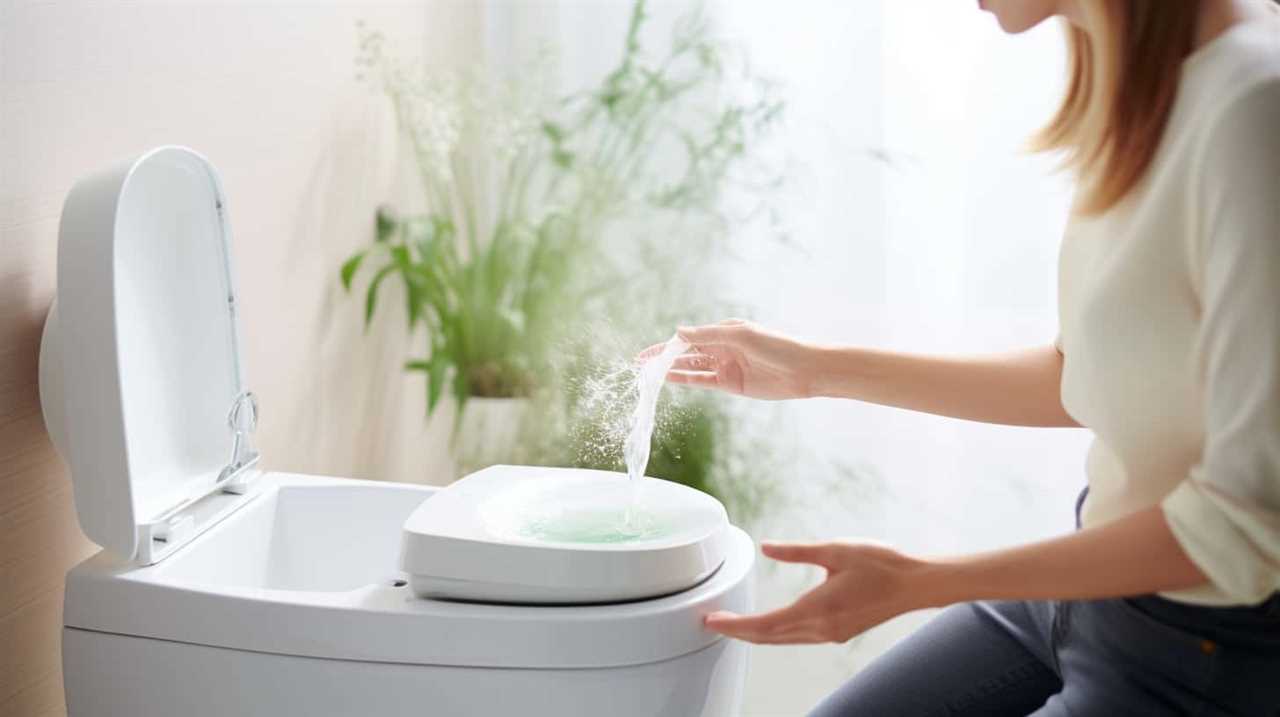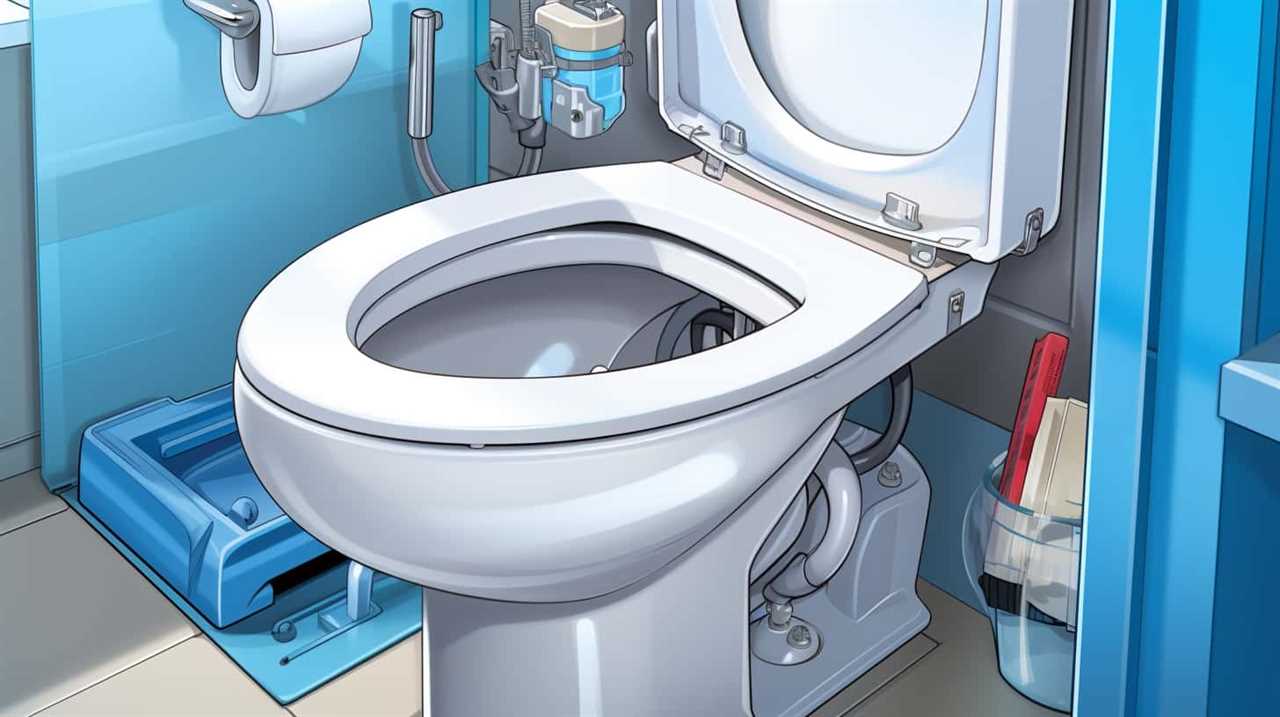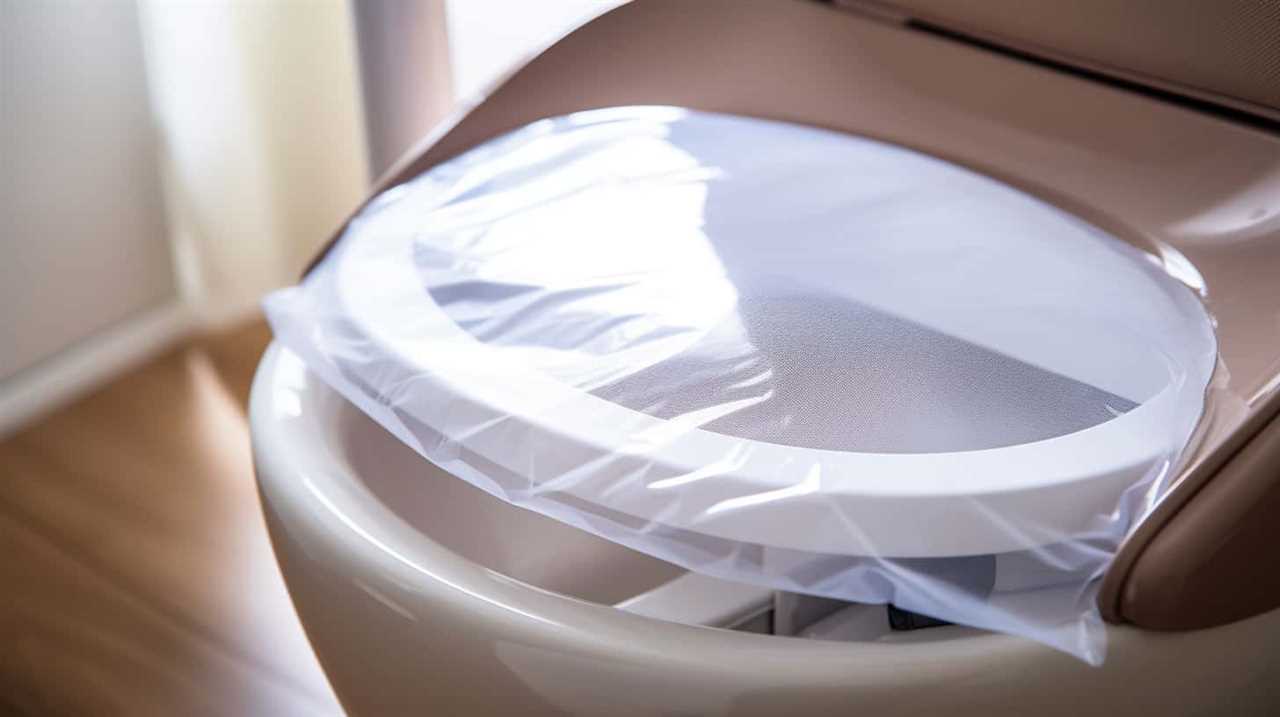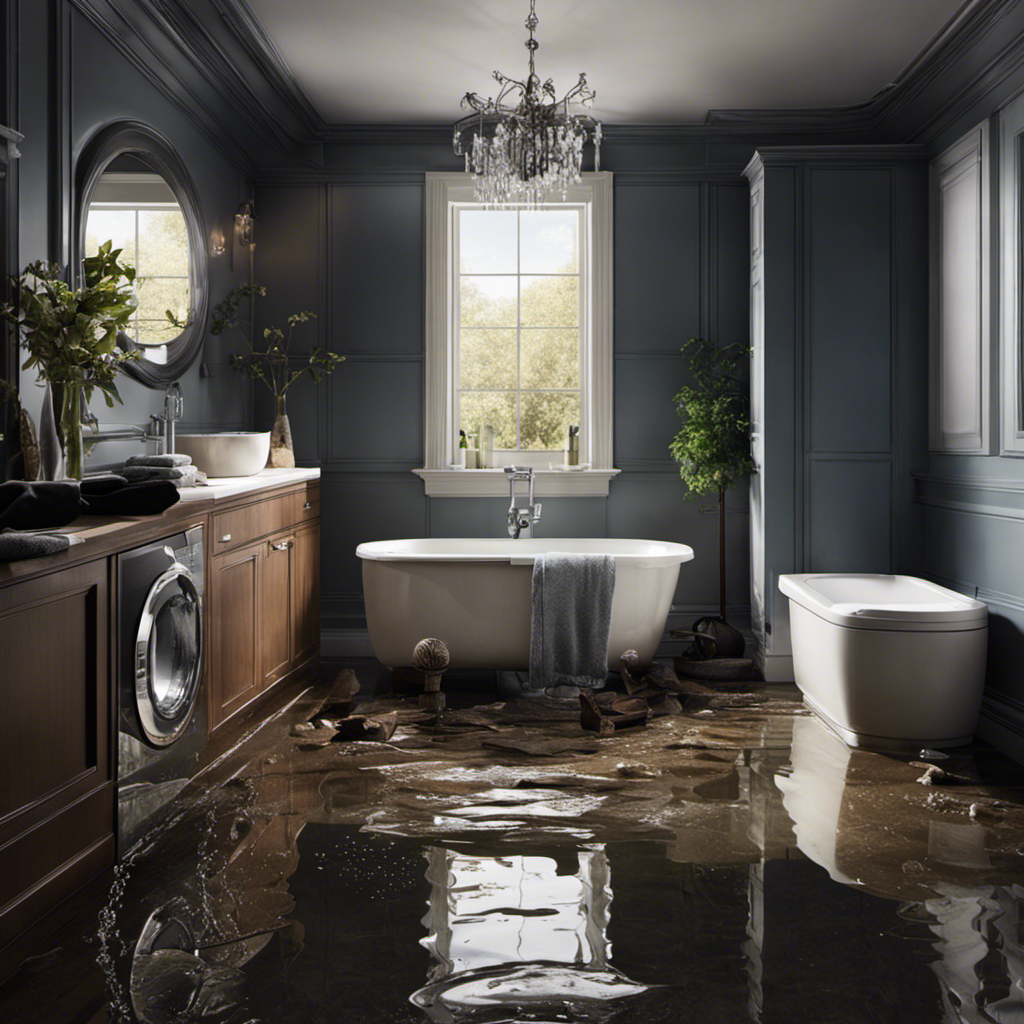Discover what our research revealed regarding the flushability of Cottonelle wipes.
Are all Cottonelle wipes truly flushable? We’ll explore the materials used in their production, what it means for them to be labeled as ‘flushable,’ and whether they are safe for septic systems.
Additionally, we’ll address concerns about potential plumbing issues and examine if these wipes are biodegradable or break down in water. We’ll even consider the recommendations of plumbers and explore alternative options to flushing Cottonelle wipes.
Key Takeaways
- Cottonelle wipes are composed of a combination of water and cellulose fibers, derived from plant sources, to provide softness and durability.
- While they are designed to be safely flushed down the toilet, there can still be negative environmental impacts, as flushable wipes can contribute to clogged pipes and sewer backups.
- Cottonelle wipes can pose a risk to septic systems, as the fibers may accumulate and hinder natural waste breakdown, potentially leading to clogs, backups, and costly repairs.
- Plumbers recommend avoiding flushing Cottonelle wipes and instead disposing of them in a trash bin or considering alternative methods such as using a wet bag or investing in a bidet.
What Are Cottonelle Wipes Made of
Cottonelle wipes are made of a combination of water and cellulose fibers, which create a soft and durable material. The cellulose fibers, derived from plant sources, provide the wipes with their absorbency and strength. Water is added to create the moistness that makes the wipes effective for cleansing. These ingredients are carefully selected to ensure that the wipes are gentle on the skin while still providing effective cleaning.

The manufacturing process involves the blending of the water and cellulose fibers, followed by cutting and folding the material into individual wipes. Finally, the wipes are packaged and sealed to maintain their freshness.
With this understanding of what Cottonelle wipes are made of, let’s now explore what it means for them to be ‘flushable’.
What Does "Flushable" Mean for Cottonelle Wipes
When it comes to Cottonelle wipes, what does it mean for them to be ‘flushable’? The term ‘flushable’ means that these wipes are designed to be safely flushed down the toilet without causing any issues in the plumbing system. However, it’s important to understand that even though Cottonelle wipes are labeled as flushable, they can still have negative environmental impacts.
Here are three things to consider:

- Environmental impacts: Flushable wipes can contribute to clogged pipes and sewer backups, leading to costly repairs and environmental damage. They can also end up in oceans and waterways, harming marine life.
- Proper disposal: To minimize the environmental impact, it’s crucial to dispose of flushable wipes properly. This means throwing them in the trash instead of flushing them down the toilet.
- Eco-friendly alternatives: If you’re concerned about the environmental impacts of flushable wipes, there are eco-friendly alternatives available. These include biodegradable wipes made from sustainable materials or using reusable cloths with water or a mild cleanser.
Are Cottonelle Wipes Safe for Septic Systems
After considering the environmental impacts of flushable wipes, it’s important to address their compatibility with septic systems.
When it comes to septic system maintenance, it’s crucial to be cautious about what goes down the toilet. While Cottonelle wipes are marketed as flushable, they can still pose a risk to septic systems.
These wipes are designed to break down in water, but the process may not be as efficient in septic tanks. The fibers in the wipes can accumulate in the tank and hinder the natural breakdown of waste.
This can lead to clogs, backups, and costly repairs. Therefore, it’s recommended to avoid flushing Cottonelle wipes to minimize the potential environmental impact and maintain the health of your septic system.

Now, let’s explore the next topic: can Cottonelle wipes cause plumbing issues.
Can Cottonelle Wipes Cause Plumbing Issues
Now let’s address the potential plumbing issues that can arise from using Cottonelle wipes.
While they may be marketed as flushable, there have been reports of wipes causing clogged pipes and sewer backups.
It’s important to note that even if a wipe is labeled as flushable, it doesn’t necessarily mean it will break down easily in plumbing systems.

Wipes and Clogged Pipes
One major concern is the potential plumbing issues that can arise from flushing Cottonelle wipes. While Cottonelle claims their wipes are flushable, there have been numerous reports of clogged pipes caused by these supposedly flushable wipes.
Here are three reasons why flushing Cottonelle wipes can be a plumbing nightmare:
- Non-disintegration: Unlike toilet paper, Cottonelle wipes don’t break down easily when exposed to water. This means that they can get caught in the pipes, leading to blockages and clogs.
- Pipe damage: The durability of Cottonelle wipes can also cause damage to the pipes themselves. As they accumulate and get entangled with other debris, they can create obstructions that can result in costly plumbing repairs.
- Environmental impact: Flushing Cottonelle wipes not only poses a risk to your plumbing system but also has a negative impact on the environment. These wipes can contribute to the clogging of sewage systems and end up in waterways, polluting our ecosystems.
With these potential issues in mind, it’s crucial to consider alternative methods of wipes disposal to avoid plumbing problems and reduce the environmental impact caused by flushing Cottonelle wipes.
Now let’s explore whether these wipes are truly flushable or a plumbing nightmare.

Flushable or Plumbing Nightmare?
As we delve into the question of whether Cottonelle wipes can cause plumbing issues, it becomes evident that the potential for a plumbing nightmare is a genuine concern. The flushable wipes controversy has been a topic of debate for some time now, with many people questioning the actual flushability of these products. While Cottonelle wipes are marketed as flushable, there have been instances where these wipes have caused clogs and backups in plumbing systems. This raises concerns about the environmental impact of flushable wipes, as they can contribute to sewer blockages and increase the workload for wastewater treatment plants. To provide a clearer understanding, let’s take a look at the following table:
| Pros of Flushable Wipes | Cons of Flushable Wipes |
|---|---|
| Convenient for personal hygiene | Can cause clogs in plumbing systems |
| May provide a fresher feeling | Increase the workload for wastewater treatment plants |
| Can be used in situations where traditional toilet paper is not available | Environmental impact concerns |
Considering the potential plumbing issues and environmental impact of flushable wipes, it is important to further explore whether Cottonelle wipes are truly biodegradable.
Are Cottonelle Wipes Biodegradable
To assess the environmental impact of Cottonelle wipes, we examined their biodegradability. Here are three important points to consider:
- Biodegradability concerns: Many consumers are worried about the environmental impact of wipes, especially those that claim to be flushable. Biodegradability refers to the ability of a product to break down naturally in the environment, reducing its impact on ecosystems.
- Environmental impact: Non-biodegradable wipes can contribute to clogged pipes, sewage backups, and harm to aquatic life. Therefore, it’s essential to understand whether Cottonelle wipes are biodegradable to make an informed choice.
- Cottonelle wipes biodegradability: Unfortunately, Cottonelle wipes aren’t fully biodegradable. While they may break down over time, they do contain synthetic materials that can take longer to decompose. As a result, they may still contribute to environmental pollution.
Considering the biodegradability concerns and potential environmental impact of Cottonelle wipes, it’s crucial to explore whether they break down in water.

Do Cottonelle Wipes Break Down in Water
Our tests revealed that Cottonelle wipes do break down in water, but at a slower rate than expected due to the presence of synthetic materials. While they’re designed to be flushable, it’s important to note that they may take longer to dissolve compared to toilet paper. The synthetic fibers used in Cottonelle wipes can contribute to this slower breakdown process. This means that although they eventually break down, they may not disintegrate as quickly as other materials.
When it comes to eco-friendliness, Cottonelle wipes may not be the most sustainable option. The presence of synthetic materials raises concerns about their biodegradability and environmental impact. Therefore, for those looking for more environmentally friendly alternatives, there are other options available.
Now, let’s explore whether Cottonelle wipes are recommended by plumbers.
Are Cottonelle Wipes Recommended by Plumbers
When it comes to the flushability of Cottonelle wipes, it’s important to consider the recommendations of plumbers. Plumbers have a unique perspective on what’s safe to flush and what can potentially cause plumbing issues.

They can provide insight into whether Cottonelle wipes are a reliable and recommended option for flushing. Additionally, plumbers may also offer alternative suggestions for maintaining proper plumbing and waste disposal.
Plumbers’ Recommended Flushability
Discussing the flushability of Cottonelle wipes, we recommend consulting plumbers for their professional opinion. Plumbers’ opinions on flushable claims can provide valuable insights into the actual flushability of these wipes. Here are three reasons why plumbers’ recommendations are important:
- Expertise: Plumbers have extensive knowledge and experience in dealing with plumbing systems. They understand how different materials can affect the pipes and sewage systems. Their expertise allows them to assess whether Cottonelle wipes are truly flushable without causing any clogs or damage.
- Real-world testing: Plumbers often encounter clogs caused by non-flushable items, including wipes. They’ve firsthand experience with the consequences of flushing materials that aren’t designed for it. Their recommendations are based on practical observations and can help prevent costly plumbing issues.
- Professional standards: Plumbers adhere to industry standards and codes of practice. They’re well-versed in what’s considered flushable and what’s not. Their recommendations align with these standards to ensure the proper functioning of plumbing systems.
Considering plumbers’ opinions on the flushability of Cottonelle wipes can help make informed decisions and avoid potential plumbing problems.
Plumbers’ Concerns About Wipes
Plumbers have valid concerns about the flushability of Cottonelle wipes, and their professional recommendations reflect these concerns. According to plumbers’ advice, flushing wipes, including Cottonelle wipes, can lead to serious consequences for your plumbing system.

Wipes aren’t designed to break down like toilet paper, and they can easily clog pipes and cause blockages. This can result in slow drains, backups, and even sewage overflows, leading to costly repairs and potential health hazards.
Plumbers recommend avoiding flushing wipes altogether to prevent these issues. Instead, they suggest disposing of wipes in the trash to ensure the proper functioning of your plumbing system. Taking this precautionary measure can save you from the inconvenience and expense of dealing with plumbing problems caused by flushing wipes.
Plumbers’ Alternative Suggestions?
To address the issue of whether plumbers recommend Cottonelle wipes, we suggest exploring alternative suggestions for their use. While plumbers generally don’t recommend flushing wipes, there are alternative disposal methods that can help prevent common plumbing issues associated with wipes.
Here are three plumbers’ recommended disposal methods:

- Trash Bin: Instead of flushing wipes down the toilet, dispose of them in a trash bin. This eliminates the risk of clogging pipes and causing sewage backups.
- Wet Bag: Consider using a wet bag specifically designed for disposing of wipes. These bags are leak-proof and can be easily sealed, preventing any odors or leaks.
- Bidet: Invest in a bidet as an alternative to using wipes. Bidets use water to clean, reducing the need for wipes altogether and eliminating any potential plumbing problems.
What Alternatives Are There to Flushing Cottonelle Wipes?
There are several alternative options available for us to consider instead of flushing all Cottonelle wipes. It is important to remember that even if a wipe is labeled as flushable, it can still have a negative impact on the environment. Here are some alternatives to consider:
| Alternative Option | Description |
|---|---|
| 1. Biodegradable Wipes | These wipes are made from materials that break down more easily in the environment, reducing their impact. |
| 2. Reusable Cloth Wipes | Using cloth wipes that can be laundered and reused is a more sustainable option. |
| 3. Toilet Paper | Traditional toilet paper is designed to break down in water, making it a safer option for flushing. |
| 4. Bidet | Installing a bidet in your bathroom can help reduce the need for wipes altogether. |
| 5. Wet/Dry Toilet Paper Combination | Some brands offer wet/dry toilet paper combinations that can provide a similar cleansing experience without the need for wipes. |
Considering these alternatives can help us make more environmentally friendly choices while still maintaining personal hygiene.
Frequently Asked Questions
Are Cottonelle Wipes Safe for Use on Sensitive Skin?
Yes, Cottonelle wipes are safe for use on sensitive skin. They are designed to be effective while minimizing potential irritants. The wipes are gentle and can be used with confidence for a thorough and refreshing clean.
Can Cottonelle Wipes Be Used by Children?
Cottonelle wipes are a convenient alternative for children. They have pros, like being gentle on sensitive skin, but there are cons, such as potential allergic reactions. Consider the age and needs of your child before using them.

How Long Do Cottonelle Wipes Take to Break Down in Water?
Cottonelle wipes have a water breakdown time of approximately flushable. They are effective on sensitive skin and suitable for children. Some alternative uses include makeup removal. Fragrance-free options are available for those with sensitivities.
Can Cottonelle Wipes Be Used for Cleaning Surfaces Other Than the Toilet?
Cottonelle wipes are versatile for cleaning various surfaces, such as kitchen counters and bathroom tiles. However, before using them outside the toilet, it is important to ensure they are safe and effective for those specific surfaces.
Are Cottonelle Wipes Fragrance-Free?
Yes, they are fragrance-free. This is beneficial for those with sensitivities or allergies. If you prefer alternatives to fragrance, these wipes are a great choice, providing a gentle and effective cleaning experience.
Conclusion
In conclusion, while Cottonelle wipes are marketed as flushable, they may not be the best option for your plumbing system. According to a study conducted by the Water Environment Federation, only about 55% of flushable wipes actually break down in water, leading to potential plumbing issues.

It’s important to consider alternative options, such as using toilet paper or disposing of wipes in the trash, to prevent clogs and damage to your septic system.










